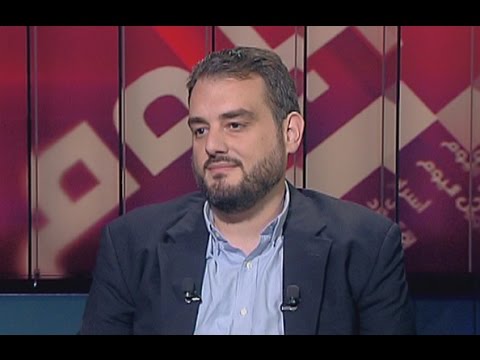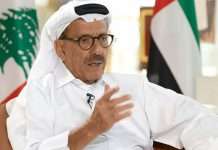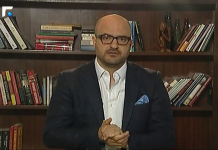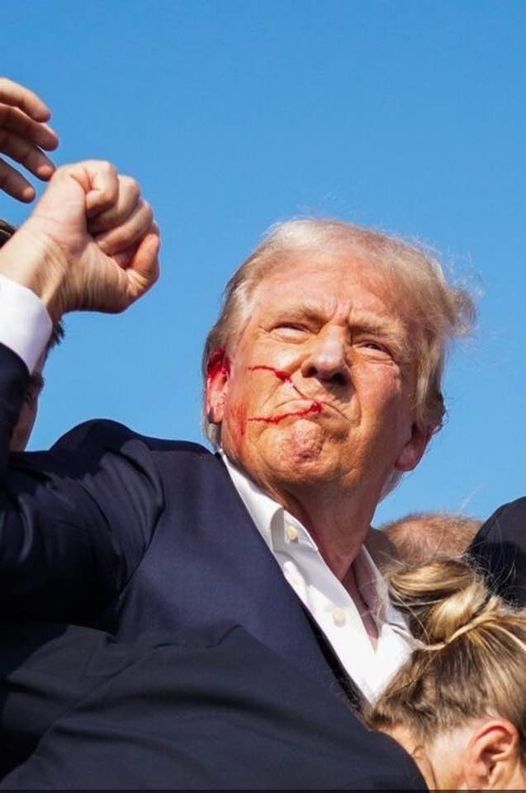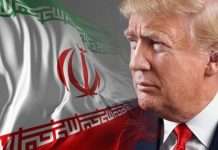Ballots, bullets and elections in Lebanon
مكرم رباح: صناديق الإقتراع وطلقات الرصاص والانتخابات في لبنان
Makram Rabah/Al Arabiya/May 10/18
The spring season is commonly celebrated by most people as a time for prosperity and glee. However, for the people of Lebanon, particularly the natives of the capital Beirut, the month of May has often been calamitous.
On May 7 2008, Hezbollah and its allies launched a full-scale military attack to topple the government of PM Fouad Siniora and occupy Beirut, a failed coup that paved the way for the Doha Accord and the political settlement that ensued.
Ironically, Ten years after their failed military venture, Hezbollah and their allies were able to subjugate the Lebanese state by sweeping the parliamentary elections that took place over the weekend.
Yet to many heedless observers these recent election, which came after nine years of hiatus, is merely a reaffirmation of Hezbollah’s natural standing within its Shiite setting as well a natural progression of his Christian allies, President Michel Aoun and the Free Patriotic Movement- FPM.
However, followers of this school deliberately elect to disregard that this supposed democratic showing of Hezbollah and its allies at the polls was mainly due to two essential factors.
First the proportional electoral law and the gerrymandering of districts which Hezbollah itself sanctioned was crafted to specifically undercut their opponents and to ultimately weaken and enclose PM Saad Hariri their main Sunni opponent.
Second, despite Hezbollah’s claims that the electoral process within their areas was democratic and exemplary, their highhanded and bullish dealings with their electoral opponents and accusations of electoral fraud was key for their landslide victory.
Trump’s withdrawal from the Iranian nuclear deal, and the possible backlash it will create with Israel, can only plunge Lebanon further into chaos, especially if Nasrallah chooses to use his weapons recklessly
Transcending the obvious
Be that as it may, this simple election transcend the obvious, as it not only gave Hezbollah a firm hold over the Lebanese state, but also brought many of Syria’s allies back to parliament. Accordingly this will allow Hezbollah to step back and allow their their Syrian cronies to advance the forefront to bully a politically feeble Saad Hariri as well as any factions who wishes to opposes their supposed axis of resistance.
Rather than admit to this bleak reality, Saad Hariri instead opted to spin his electoral blunder as a victory for his faction, whose seats went down from 35 to 21 seats. Yet Hariri declared that his adversaries had failed to dethrone him as head of the Sunni community, a fact reflected through the polls.
While this deduction might be essentially true, Hezbollah’s main objective was indeed to check Hariri’s cross national representation to the Sunni’s or more accurately to a portion of them, forcing him to concede a seat or two in his next cabinet to his Sunni opponents, most of whom are within Iran and Syria’s sphere of influence.
This aforementioned scenario is highly likely given that Hariri seems adamant on continuing to honor the Faustian deal he had concluded with President Aoun and his son-in-law the over-ambitious Gibran Basil, the current; leader of the FPM.
Antagonizing international community
Consequently, by agreeing to form a national unity government, which will house Hezbollah and its Syrian allies, Hariri would further antagonize the international community as well as the Arab world, who are already weary of Lebanon’s inability to honor its disassociation pledge and prevent Hezbollah from using the country to pursue Iran’s regional goals.
Over the last three months, Hariri and his government have approached the international community, both at the Rome and the Paris conference, to demand financial and security assistance, a request that many of Lebanon’s friends happily obliged.
Yet many of these pledges rested on a firm commitment from both Hariri and Aoun to see through a number of structural economic reform and more importantly reach a clear national defense strategy, which will ultimately seal the controversial issue of Hezbollah’s weapons.
While Hezbollah at the time refrained from responding to Hariri’s wishful pledges, Nasrallah victory speech soon nipped them in the bud as he arrogantly declared that this is a major political, parliamentarian and moral victory for the choice of the resistance,” thus placing both Hezbollah and its arsenal outside the realm of discussion, now and in the future.
Trump’s withdrawal from the Iranian nuclear deal, and the possible backlash it will create with Israel, can only plunge Lebanon further into chaos, especially if Nasrallah chooses to use his weapons recklessly.
The Lebanese parliamentary elections and its subsequent result must not be taken lightly, not merely because of Hezbollah victory but rather because it offers a perfect model of how Iran and its agents across the region, continue to use both bullets and ballots to expand and secure the Tehran-Beirut corridor.
A corridor that Saad Hariri, if he does chose to form the next cabinet would be only guarding Iran’s access to the Mediterranean , placing Lebanon’s political and economic future in peril.
https://english.alarabiya.net/en/views/news/middle-east/2018/05/10/Ballots-bullets-and-elections-in-Lebanon.html
**Makram Rabah is a lecturer at the American University of Beirut, Department of History. He is the author of A Campus at War: Student Politics at the American University of Beirut, 1967-1975. He tweets @makramrabah.













